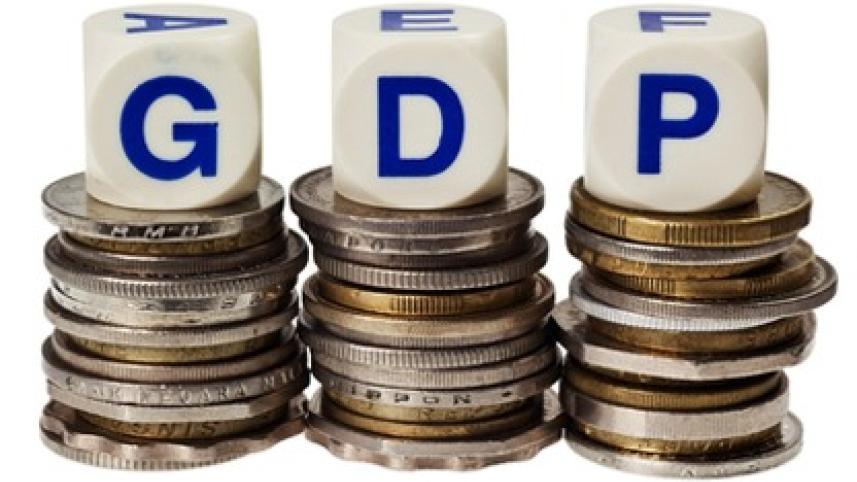New optimism for investment

The year 2016 has started with a note of optimism in the frontiers of both political understanding and investment prospects. Unlike 2015, which kicked off with an unprecedented three-month long continuous blockade, 2016 marks a remarkable improvement in the 'agitation culture' of the opposition, signalling the acceptance of concerns of the working people. We are not living in the era of 1971, when a legendary leader like Bangabandhu would only need to command, and the whole nation would come to a grinding halt. Gone are the days when hartals against even a dictatorial military ruler in the 1980s had sufficient ground for public support.
Now the economy has changed particularly, since we embarked on the market economy. More people are employed and they are tired of disruptive showdowns, irrespective of the person responsible for them. Bangladesh has been marching towards a middle income country status, and the current regime has managed to change the mindset of the people to keep the focus on economic issues. Politics has taken a backseat for now. In addition, tremendous proliferation of the media has made the marketing of products and new ideas much easier. As a result, self-employment and entrepreneurship have burgeoned in both quantity and quality. People who are engaged in self-made enterprises need uninterrupted transport and communication facilities. A smooth continuation of services has become part of our rational expectations, thereby crippling the future of political blockades that snatch the bread and butter from working people.
This new generation of entrepreneurs and employees crave enhanced security and hate wasting a part of their income through the loss of mobility and activity. Most of them are even indifferent to the power-changing game taking place at the state level. They do not approve of inactivity or destruction in the name of 'political rights'. As a result, political sabotage through sporadic vandalism under the pretext of "rescuing democracy" has lost its appeal.
Violence appears to have lost its traction in wooing the masses. A game-theoretic behavioural equilibrium between the two major political parties appears to be a noticeable improvement in the areas of tolerance and compromise. The latest mayoral election is a great testimony to the new mood of tolerance in politics. Withdrawing from the election race had not been proven effective for the opposition in gaining public support or sympathy. Of late, a developmental tone in politics has been rising, which many politicians were not ready for in the past. Now politicians insert economic indicators in their speeches more than ever before.
Based on the new era of political orientation, a note of optimism in investment confidence prevails. The reflections are evident in the latest increase in private sector credit growth, as it is close to 14 percent, and the export performance is close to 8 percent. Capital machinery imports show an upward trend while remittance growth is also buoyant, as we can see from the figures of the last three months. The capital market, though languishing over the last couple of months, now shows an upward turn. The Dhaka Stock Exchange turnover hit a five-month high just a week ago. The economy is poised to speed up. Now is the time to raise the share of private investment in GDP – a crucial rate which has been floundering at 22 percent for years. It should rise to at least 25 percent to bring in 8 percent GDP growth.
There are two major impediments to investment: high inflation and high interest rates. High inflation reduces investment through decreasing consumption volume, because consumption feeds investment in a lagged fashion. Currently Bangladesh is lucky enough to enjoy a low inflation period, as the inflation rate hovers at around 6.2 percent. Amazingly, this was achieved even when the government did not adjust the fuel price with the international market – a market driven adjustment which all our neighbours have been constantly doing since long. It helped our neighbours reap the advantage of lower inflation, and now they have beaten us in inflation. Fuel price adjustments will be imperative to counteract upward pressures on inflation being triggered from a huge salary and pension hike for more than 2 million employees and retirees in the government sector.
Still, a 6.2 percent inflation rate does not seem to lead headlines in a developing economy like Bangladesh, where threshold inflation may range between 5 to 7 percent, above which inflation begins to erode growth. The government's recent indication of adjusting fuel prices ushers in new possibilities of further reduction in inflation. Predictions see further fall in oil prices, bolstering further rise in consumption and kindling investment optimism in Bangladesh.
The business community has been accusing the banking sector of high lending rates. Recently, the Finance Minister acknowledged that high interest rates form the main deterrent to investment. State-owned banks have decided to reduce lending rates by 1.5 to 2 percentage points to lead to a lending rate of 14 percent and a deposit rate of 7 percent. The recent statement of the Finance Minister to reduce sanchaypatra (saving certificate) rates, and also to adjust fuel prices, created a stir in the market, as these two steps, if implemented, are likely to reduce both inflation and interest rates, heralding good news for investors in the country. The faster this business mindedness is embodied in political manoeuvrings, the quicker the investment optimism will translate into growth, leading to a vibrant Bangladesh.
The writer is chief economist of Bangladesh Bank.




 For all latest news, follow The Daily Star's Google News channel.
For all latest news, follow The Daily Star's Google News channel.
Comments